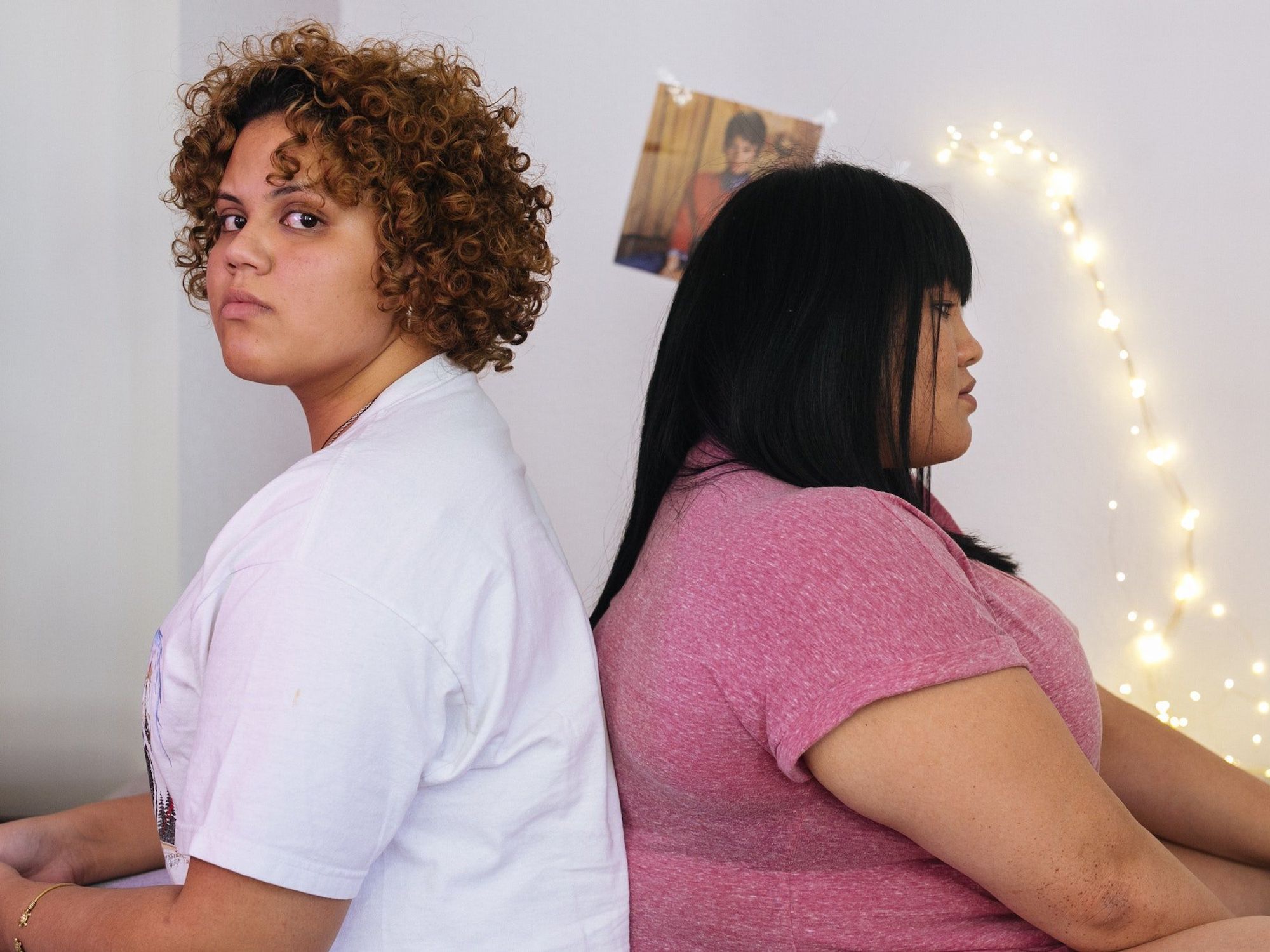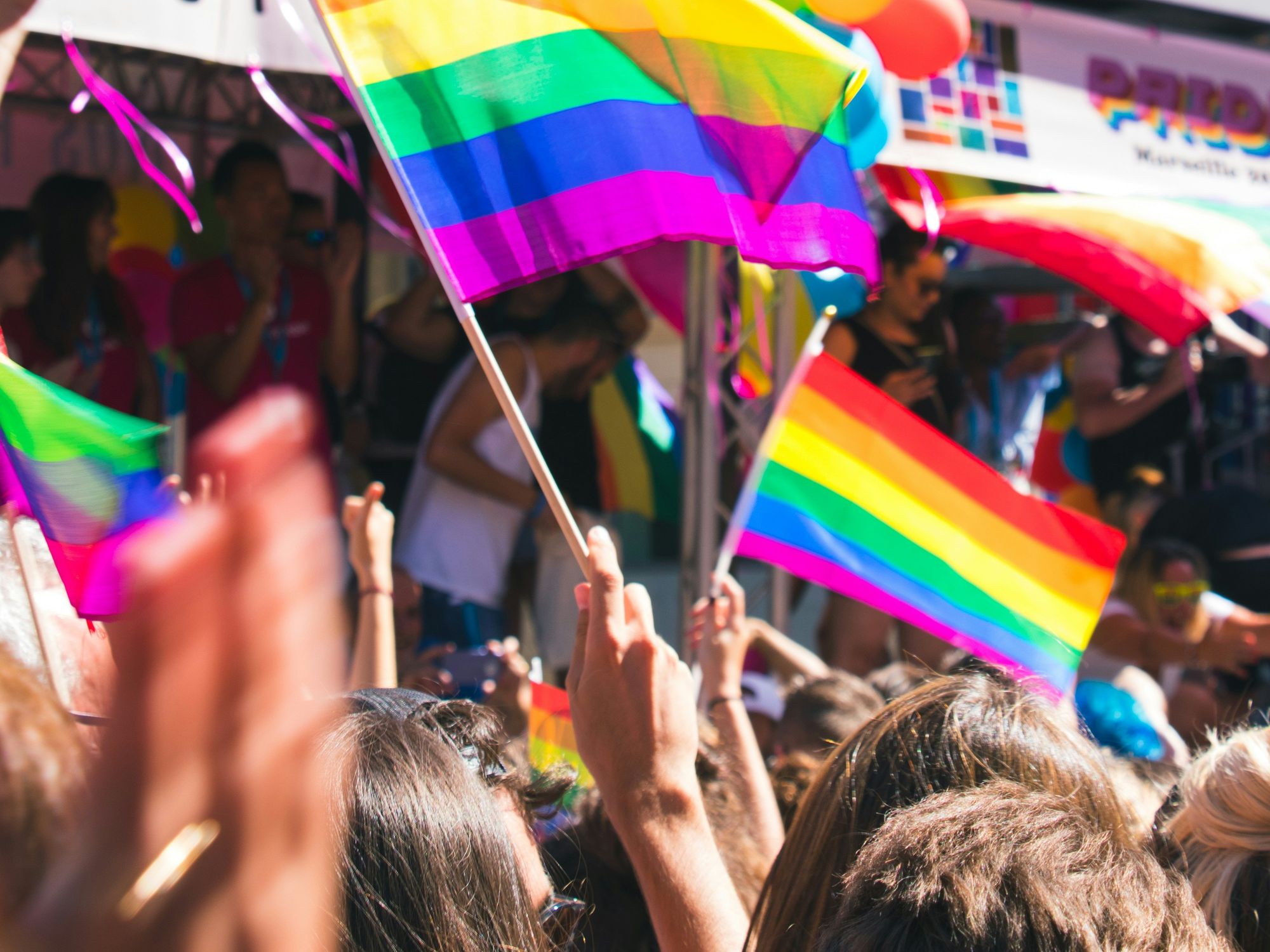
Being Latine and growing up in a community often rooted in strong “traditional” values can be a beautiful, enriching experience filled with family, vibrant culture, and warm memories. However, for Latine individuals who identify as LGBTQ+, the journey may also be marked by struggle and internal conflict due to prevalent societal and religious norms and expectations.
One of the most profound challenges that queer Latine individuals may face is internalized homophobia, a harmful phenomenon stemming from societal prejudices that can deeply impact mental health and self-perception.
What is Internalized Homophobia?

Photo by RF._.studio on Pexels
Internalized homophobia can be defined as the involuntary belief in the negative stereotypes and prejudices about homosexuality that society often projects. It isn’t exclusive to any particular cultural or ethnic group, but within the Latine community, its manifestations can be particularly complex due to the cultural and religious factors often at play.
How Does Internalized Homophobia Affect the Latine Community?
 Photo by Lareised Leneseur on Unsplash
Photo by Lareised Leneseur on UnsplashMany Latine cultures, influenced by Catholicism and traditional gender norms, may promote heteronormative expectations. Familial expectations to uphold these norms can inadvertently instill feelings of guilt, shame, or fear in LGBTQ+ Latine individuals, contributing to internalized homophobia. This often leads to a struggle with self-acceptance, creating a harmful cycle of self-doubt, and negative self-perception.
How Can Internalized Homophobia Present Itself?

Photo by RF._.studio on Pexels
Internalized homophobia can present itself in a multitude of ways, often with complex and multifaceted ramifications. Here are some of the common manifestations:
- Denial of Sexual Orientation: It could initially emerge as an outright refusal to acknowledge one's true sexual orientation. This denial is typically fueled by fear, confusion, or the unwillingness to accept oneself due to societal or internal pressures.
- Reluctance to Come Out: Another common manifestation is a hesitation or outright refusal to come out to family, friends, or oneself. The fear of potential rejection or misunderstanding can discourage individuals from embracing their identity and sharing it with others.
- Self-loathing: Internalized homophobia can also trigger deep feelings of self-loathing, often rooted in a perception that their sexual orientation is something shameful or wrong. This negative self-image can severely impact self-esteem and overall mental well-being.
- Overcompensation and Conformity to Heteronormative Standards: This refers to the tendency of individuals to go to great lengths to fit into societal norms that favor heterosexual relationships and behaviors. Overcompensation may take the form of forced participation in heterosexual relationships, exaggerated gender performance, or denying any behavior or feelings that could be interpreted as homosexual.
The damaging consequences of internalized homophobia shouldn’t be underestimated. It can lead to a host of harmful behaviors such as self-harm, substance abuse, and other forms of self-destructive behavior. Furthermore, it can cause serious mental health issues, including:
- Anxiety: This may stem from the constant stress and fear of being discovered, rejected, or persecuted due to their sexual orientation.
- Depression: The persistent self-loathing and isolation associated with internalized homophobia can lead to chronic feelings of sadness, loss of interest in activities, and persistent depressive moods.
- Suicidal Ideation: In severe cases, the emotional pain and psychological distress can become so overwhelming that individuals may contemplate suicide as a way to escape the internal conflict and external pressures they face.
What Can We Do to Address Internalized Homophobia?

Photo by Thiago Barletta on Unsplash
Addressing internalized homophobia within the Latine community requires comprehensive efforts. Education is key — both within the community and outside it. Challenging homophobia and heteronormative expectations begins with promoting a broader understanding of sexual orientation and gender identity as natural human variations, not something to be stigmatized or feared.
Providing LGBTQ+ Latine individuals with supportive spaces is crucial. Mental health services, counseling, and support groups can provide a much-needed outlet for discussing and processing feelings of internalized homophobia. These services, however, need to be culturally sensitive, recognizing the specific experiences and challenges faced by Latine individuals.
Steps Toward Acceptance
 Photo by Tristan B. on Unsplash
Photo by Tristan B. on UnsplashIn recent years, there have been encouraging steps towards greater acceptance and representation of the LGBTQ+ community within the Latine community. There is a growing number of Latine advocates, public figures, and artists openly identifying as LGBTQ+, and Latine families and communities are evolving, with many showing unconditional love and acceptance for their LGBTQ+ members.
Still, there's a long way to go in fully addressing internalized homophobia and its harmful effects. As the dialogue continues to grow and evolve, the hope is that future generations of Latine LGBTQ+ individuals will grow up in a world where they feel seen, accepted, and loved, both by their communities and, most importantly, by themselves.
- Sylvia Rivera: The Unstoppable Force Behind the 'T' in LGBTQ+ ›
- Representation and Visibility: Narrative Change through Meaningful LGBT Latine Characters ›









 Promotional image provided by On Point Studios.
Promotional image provided by On Point Studios.  Promotional image provided by On Point Studios.
Promotional image provided by On Point Studios. 
